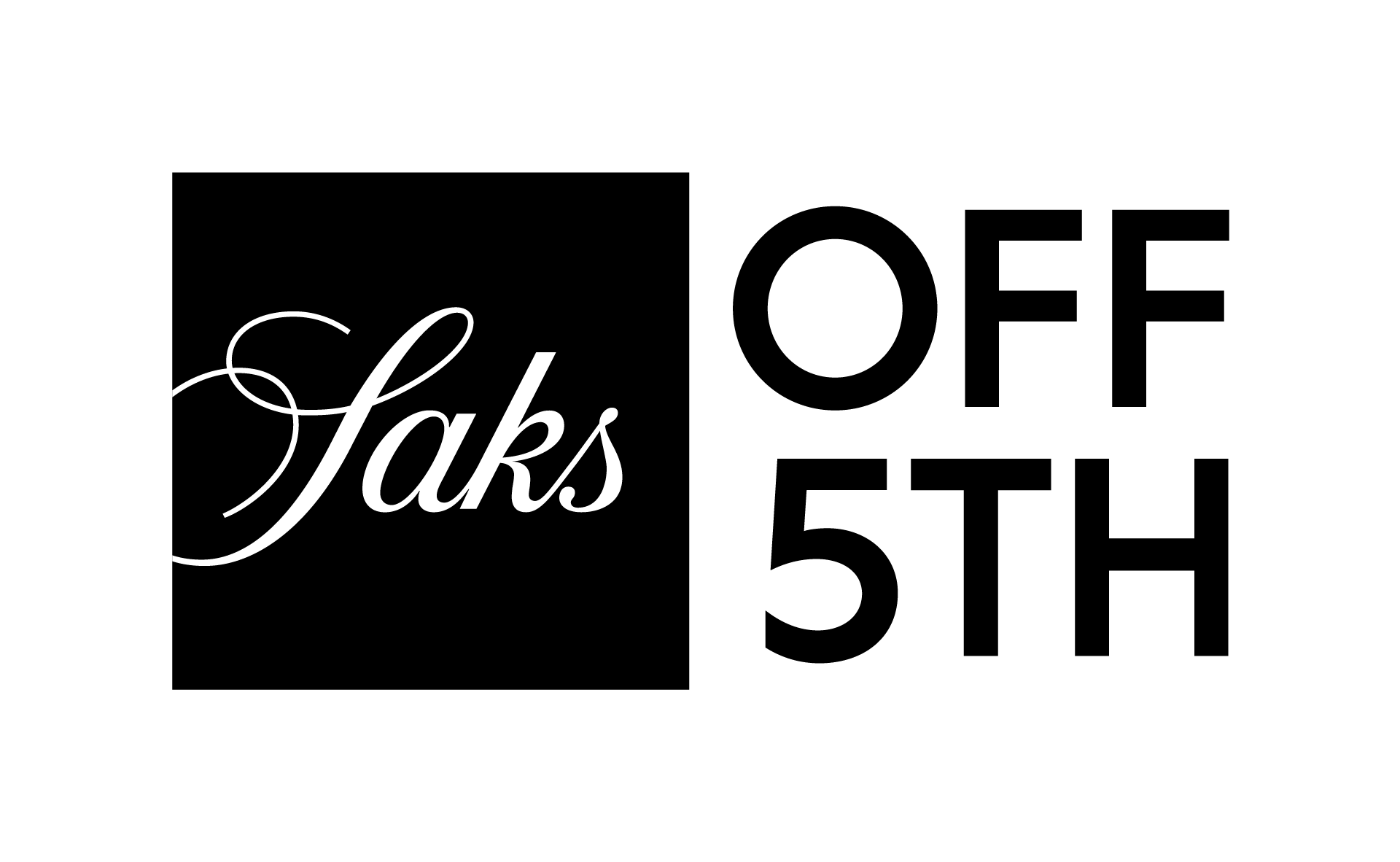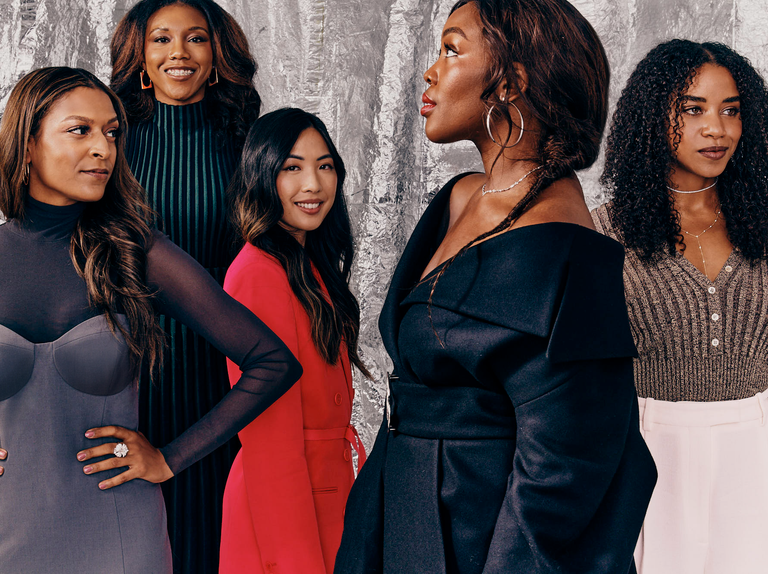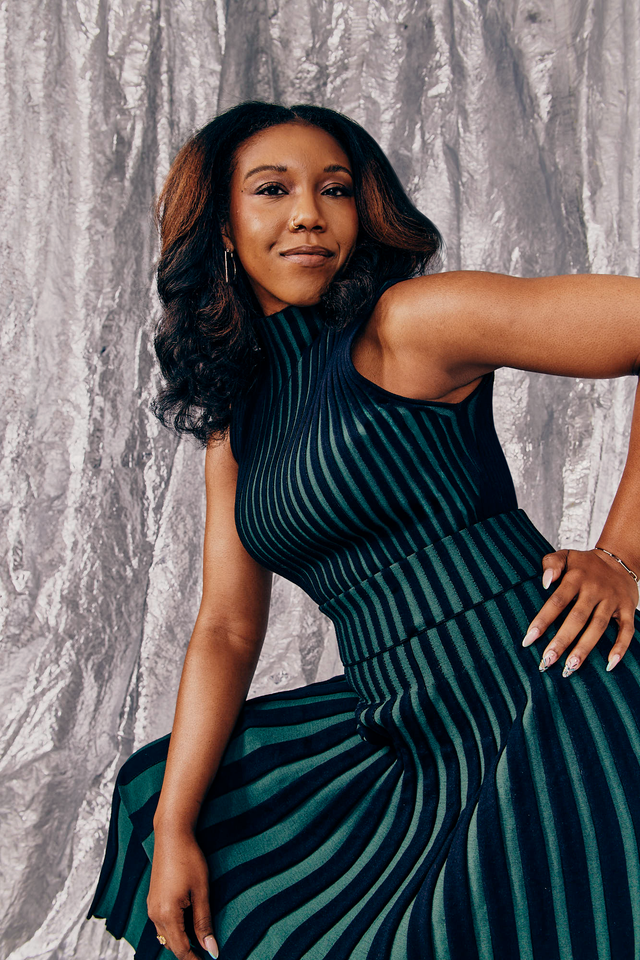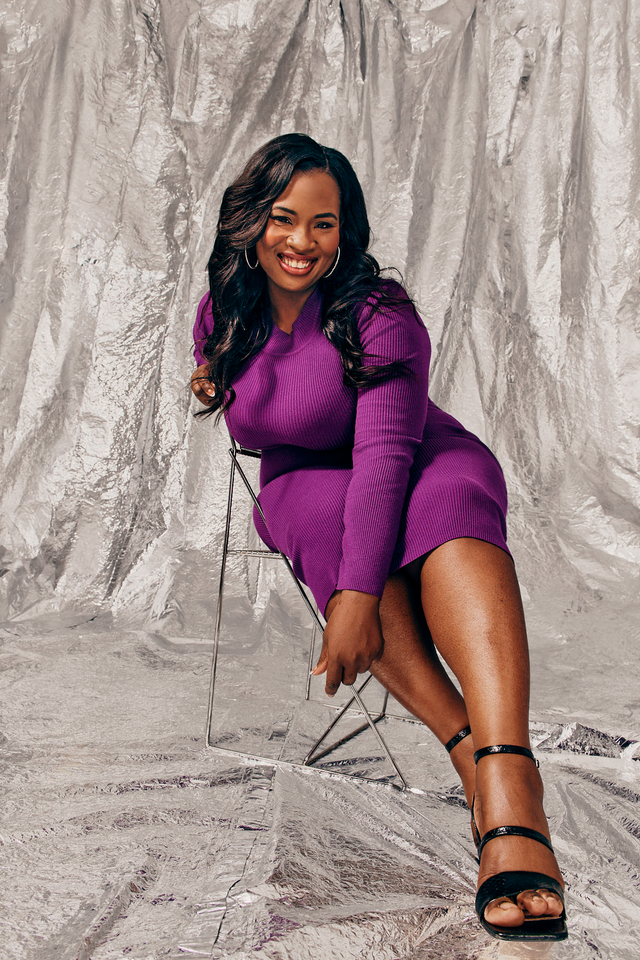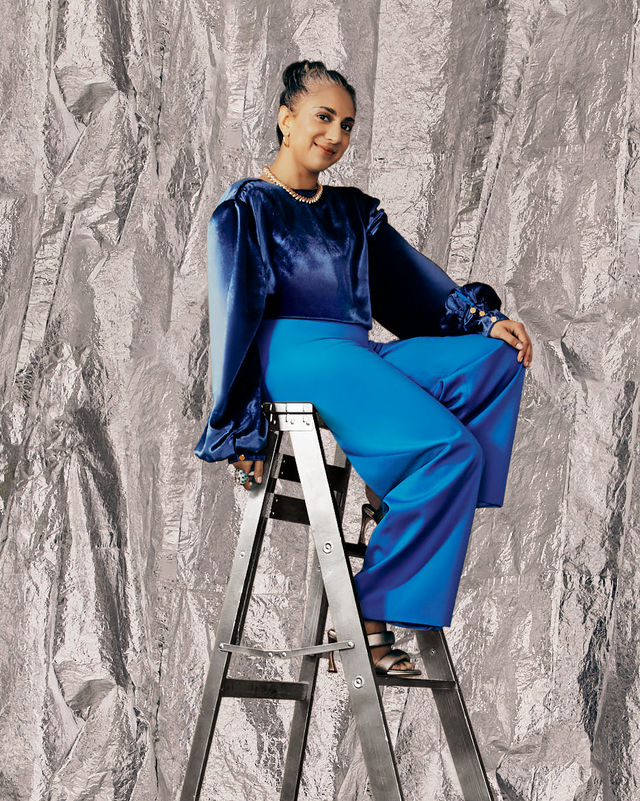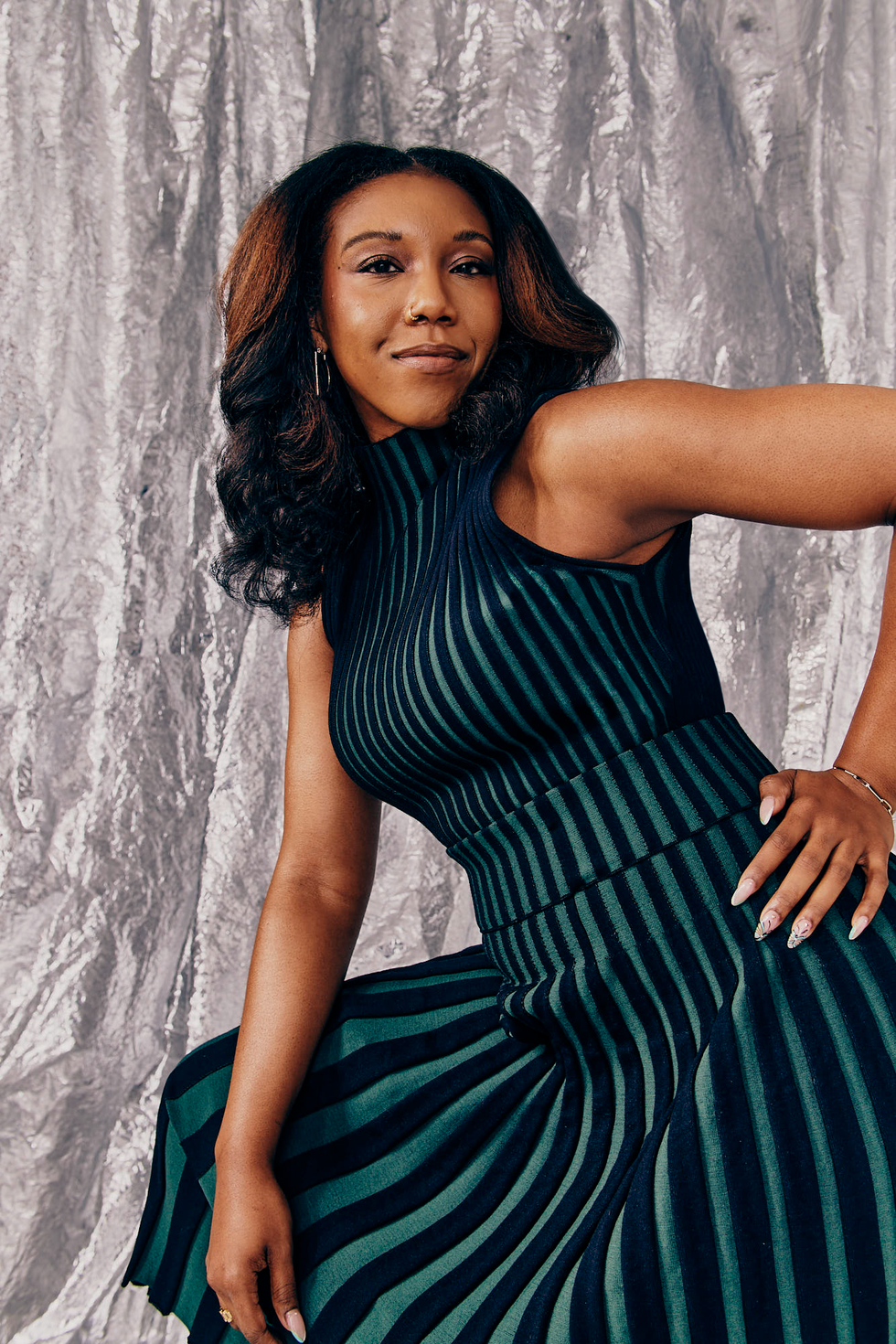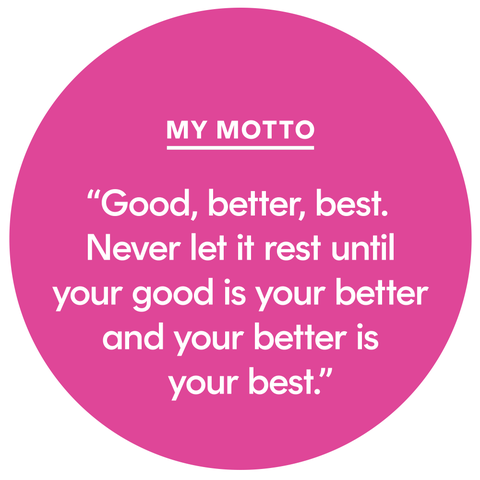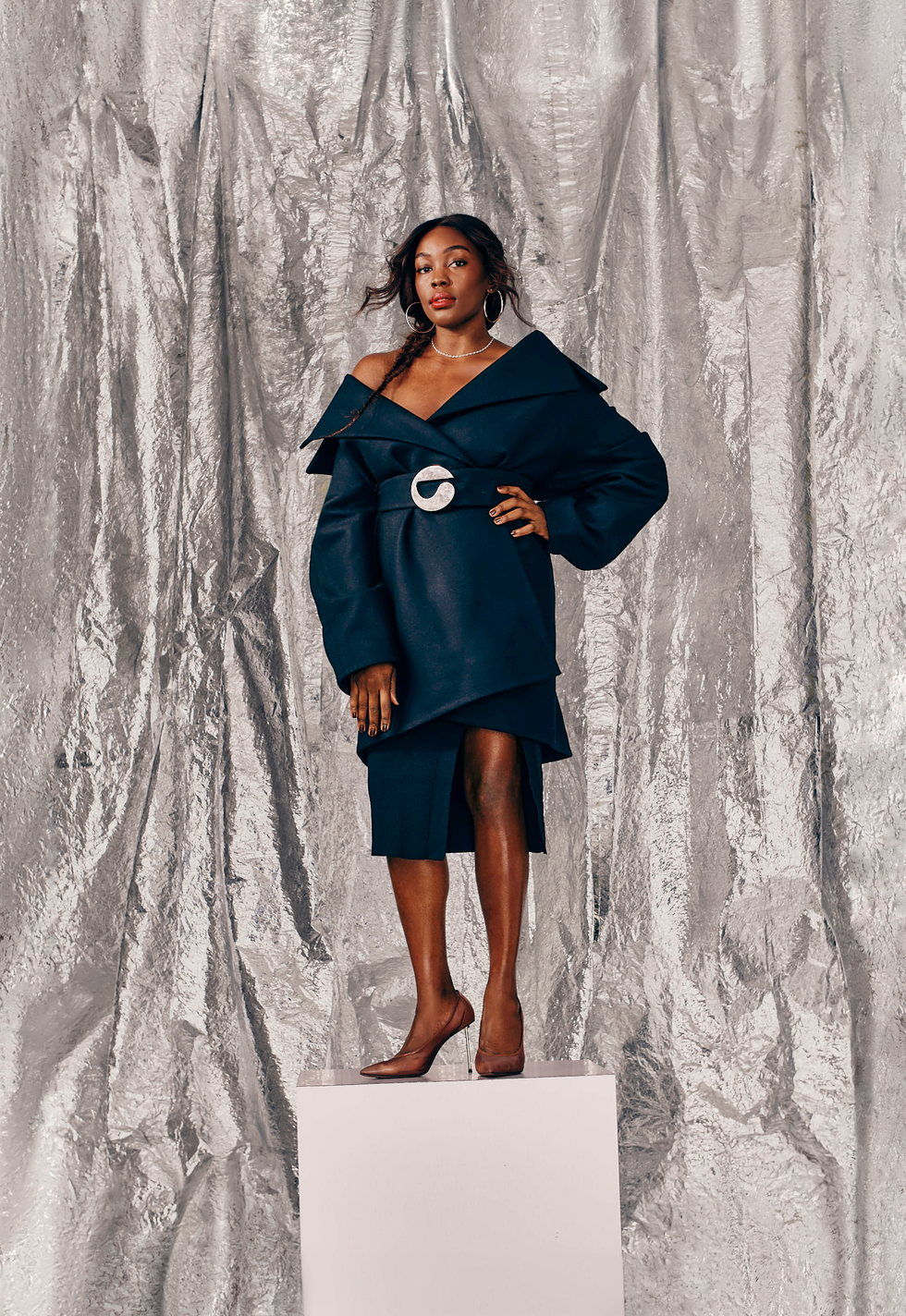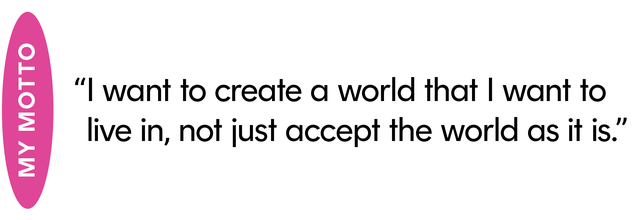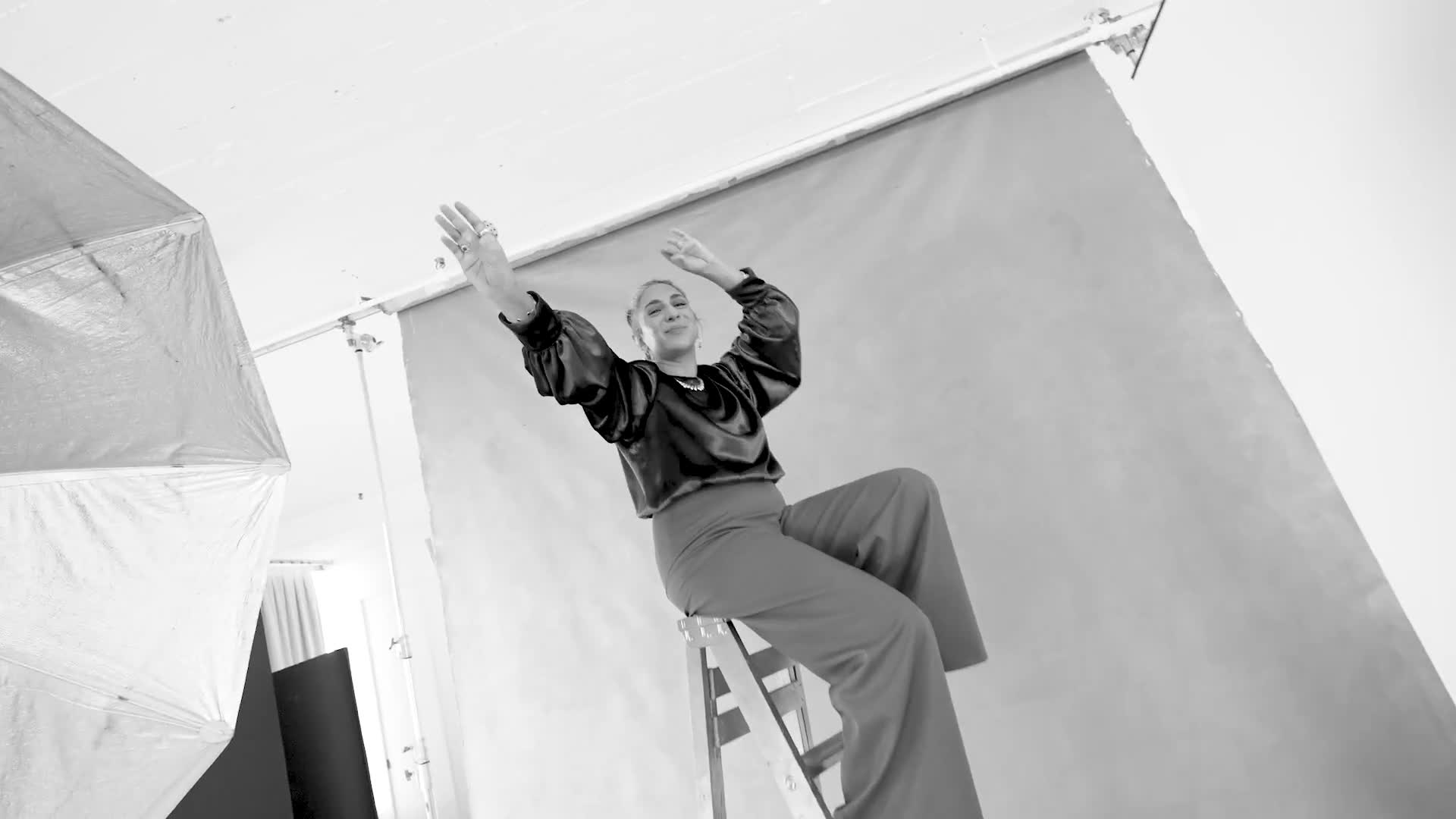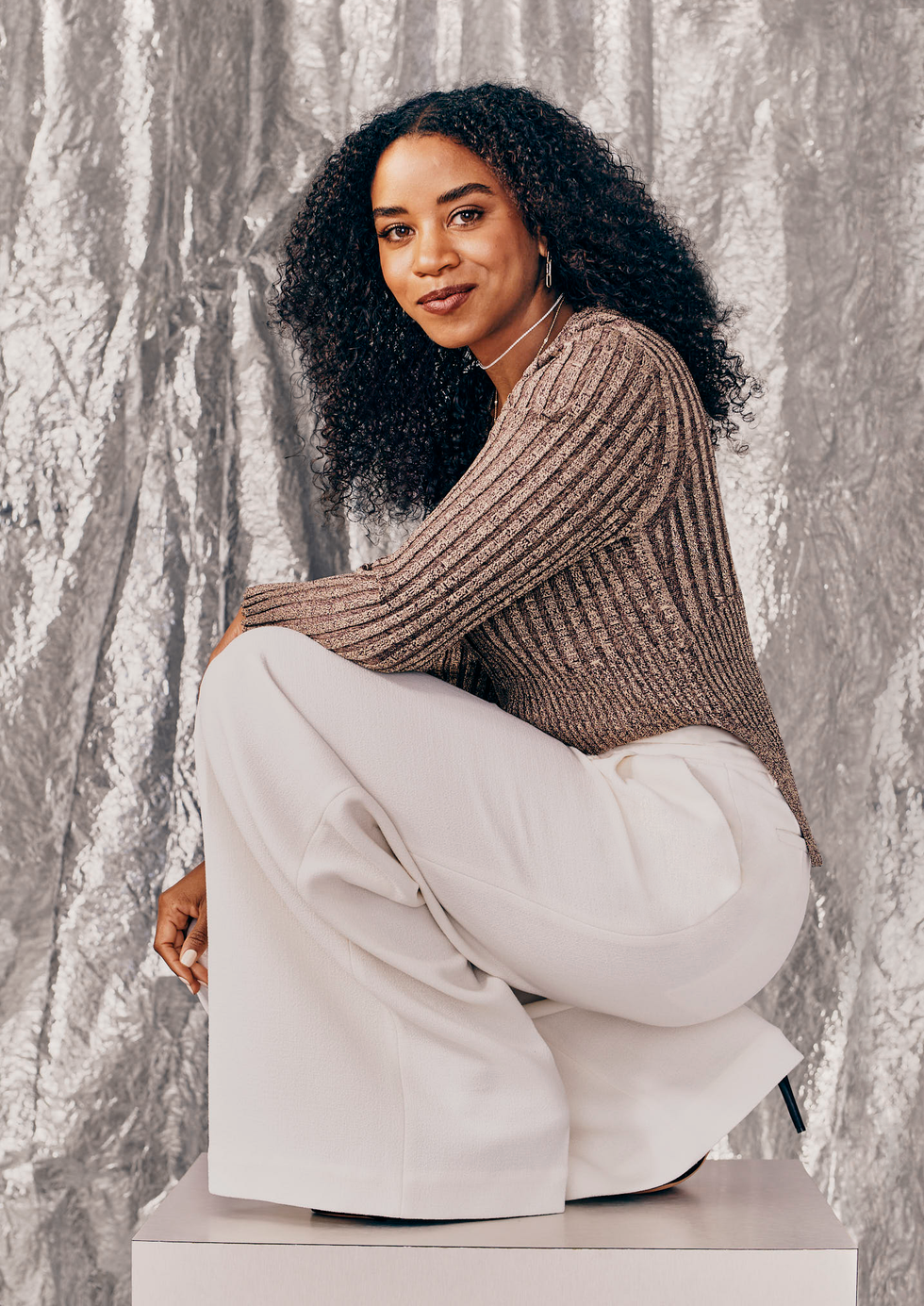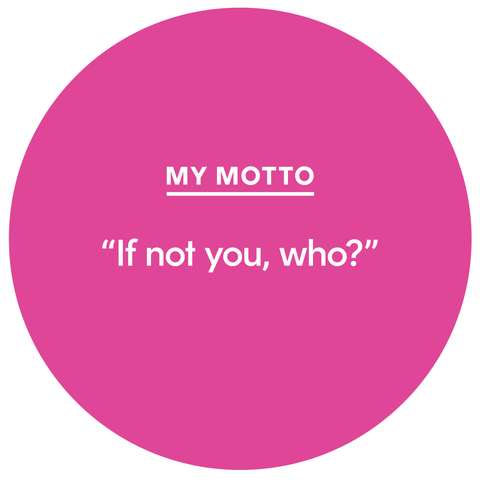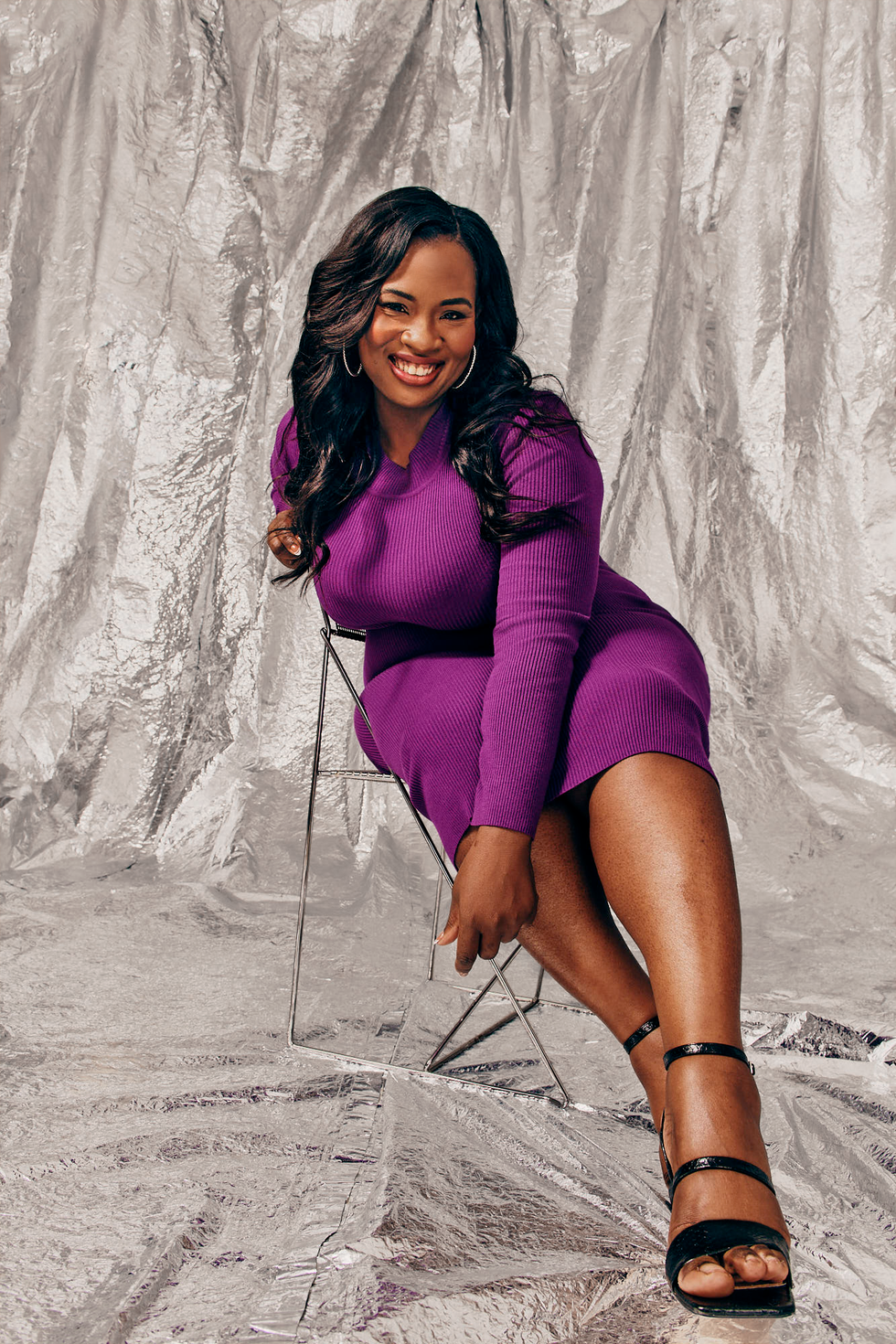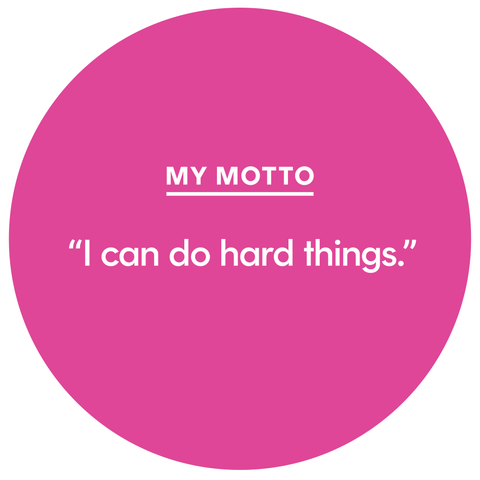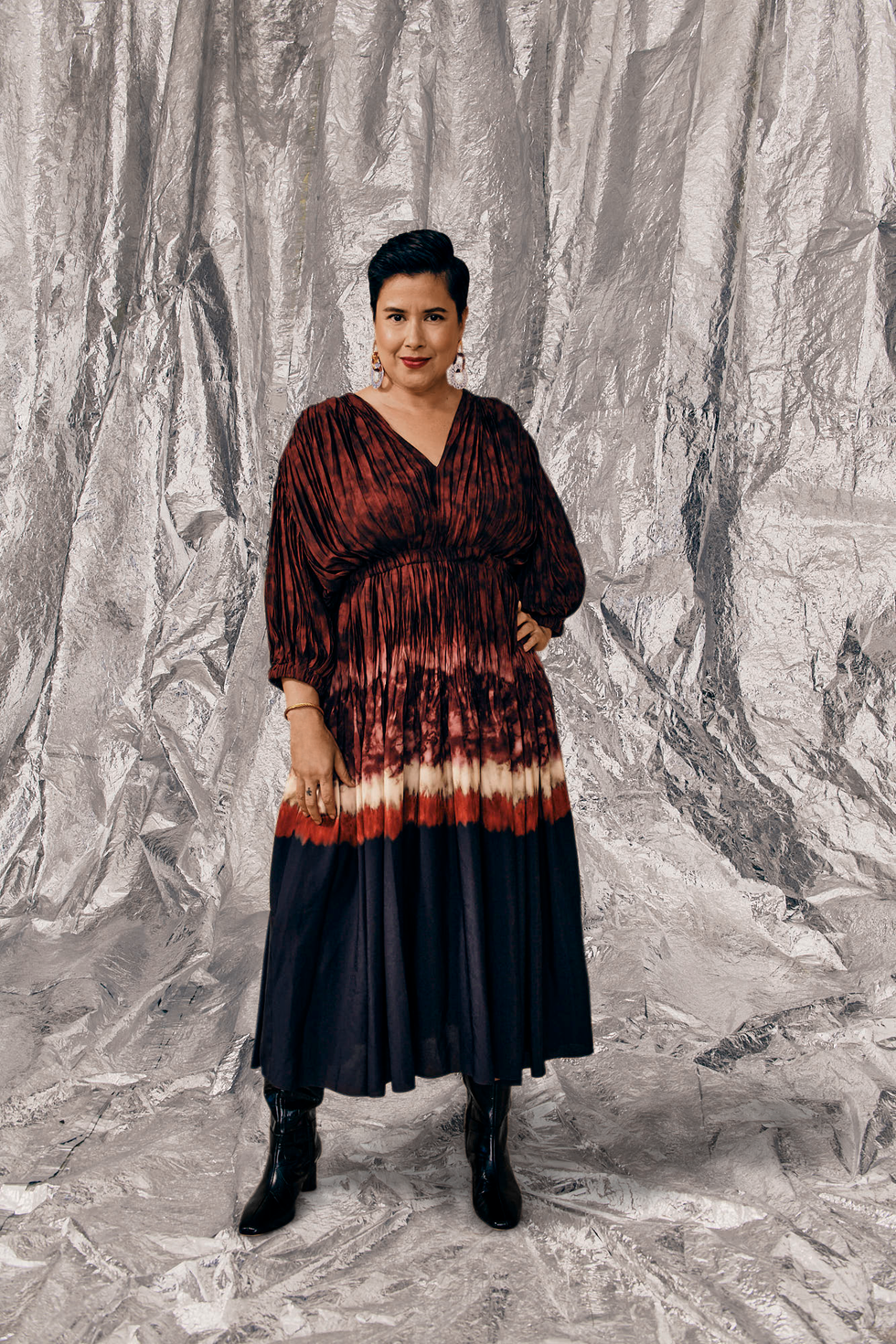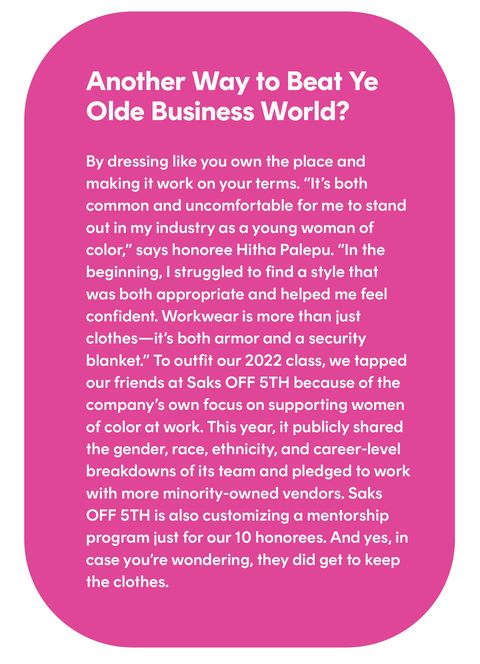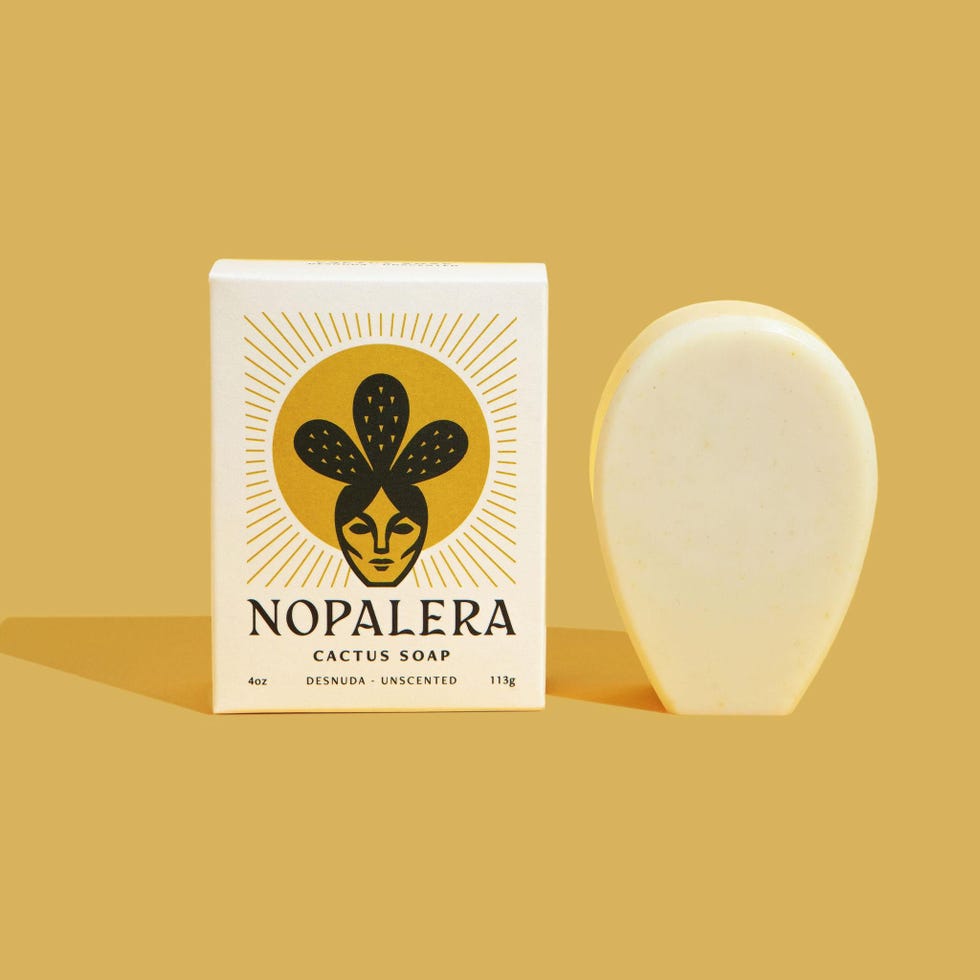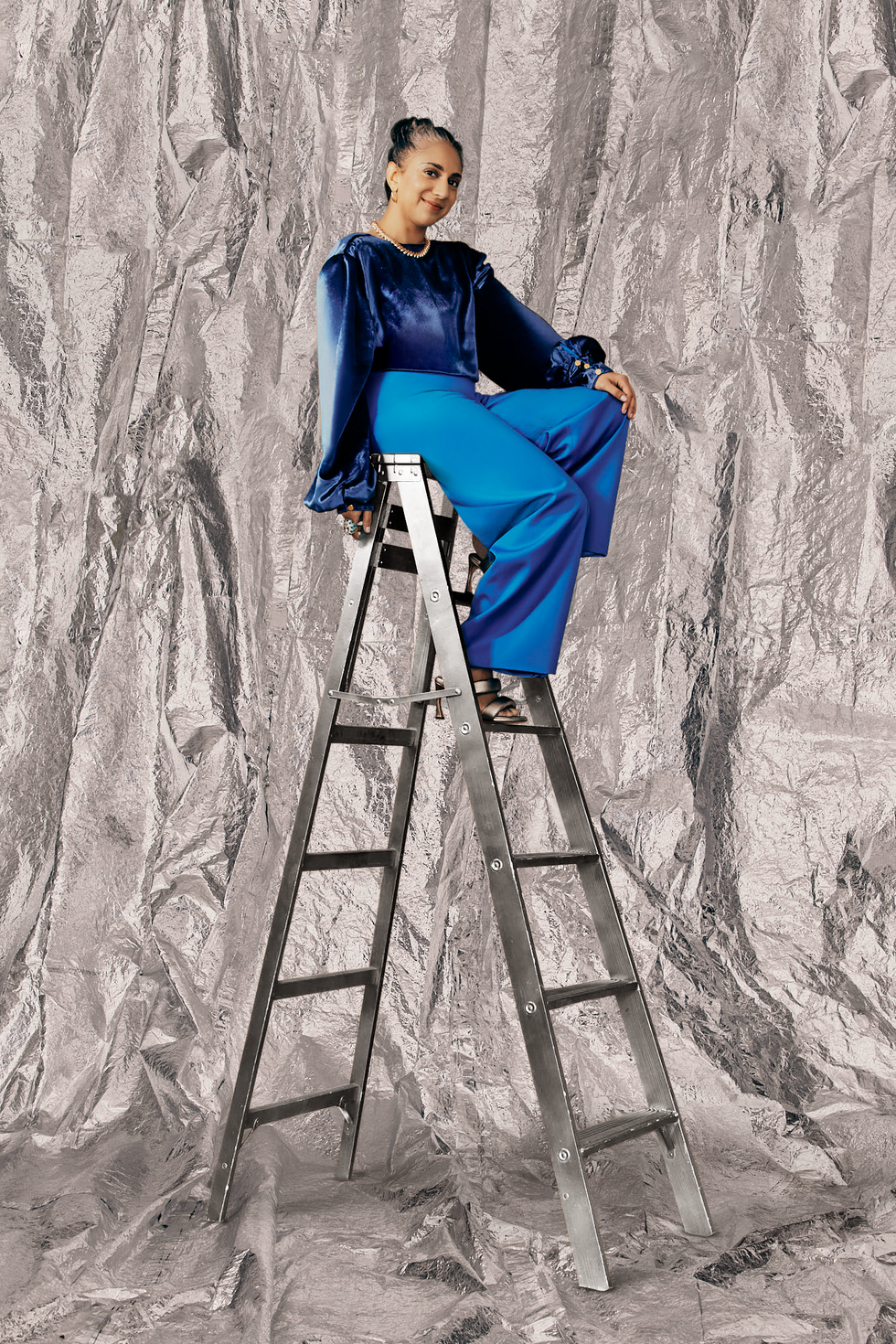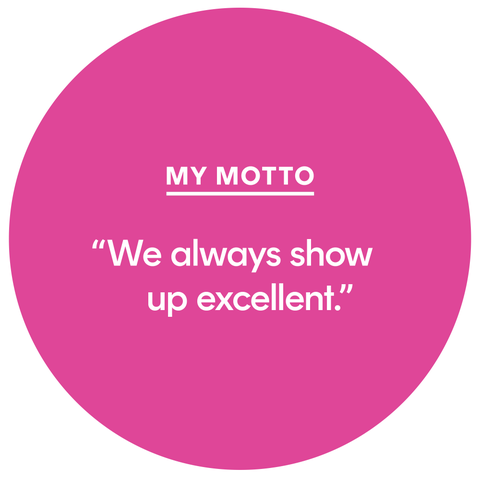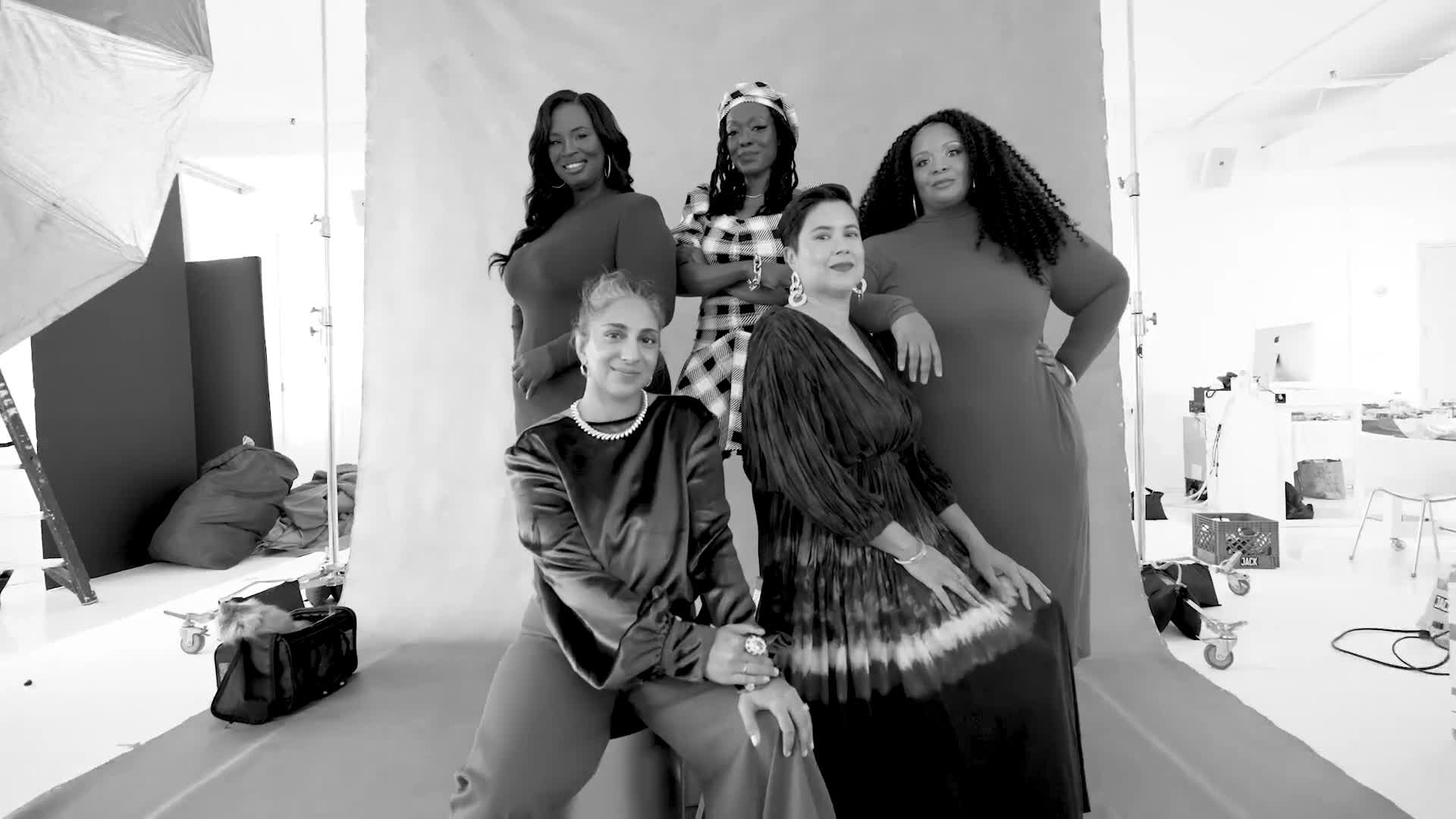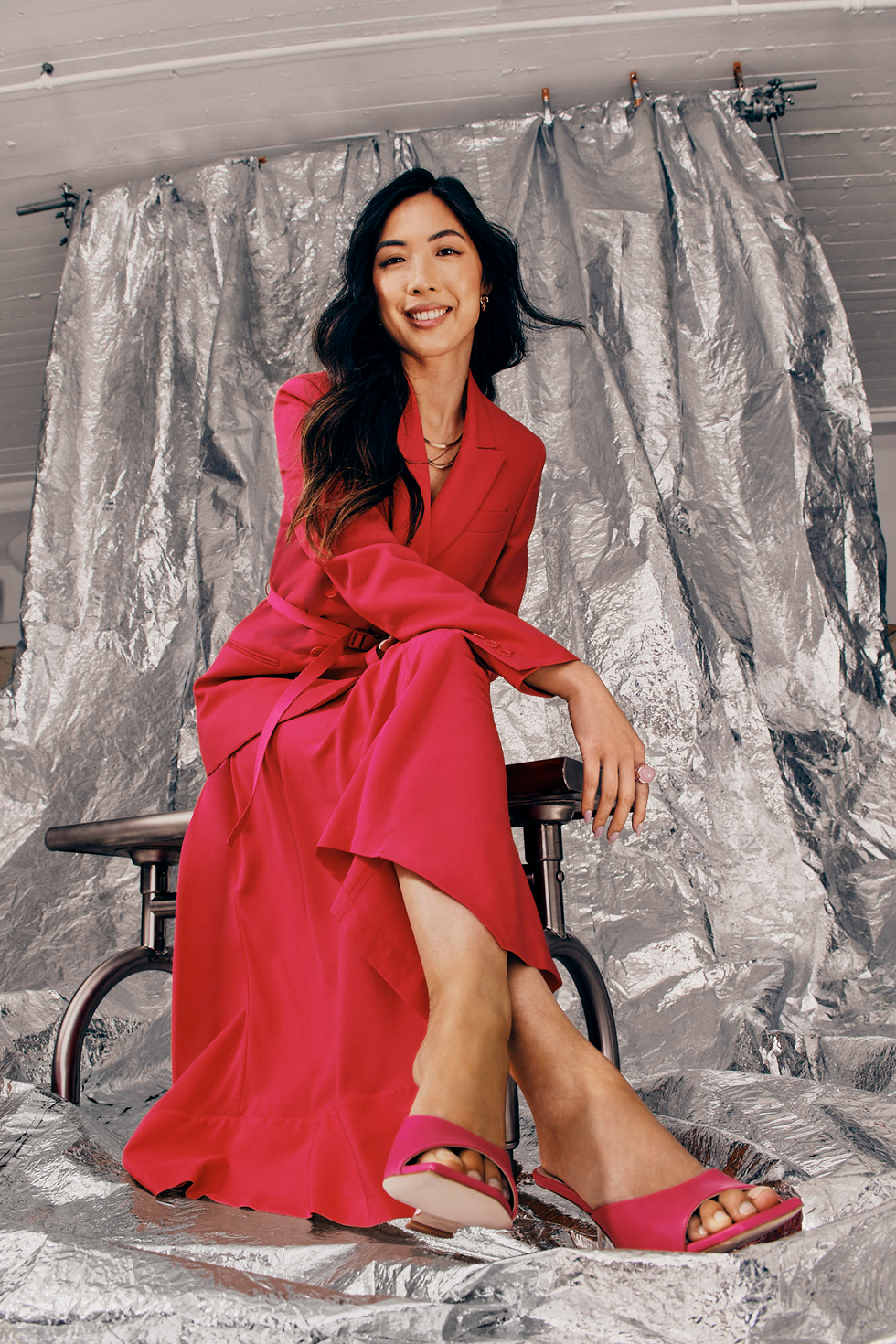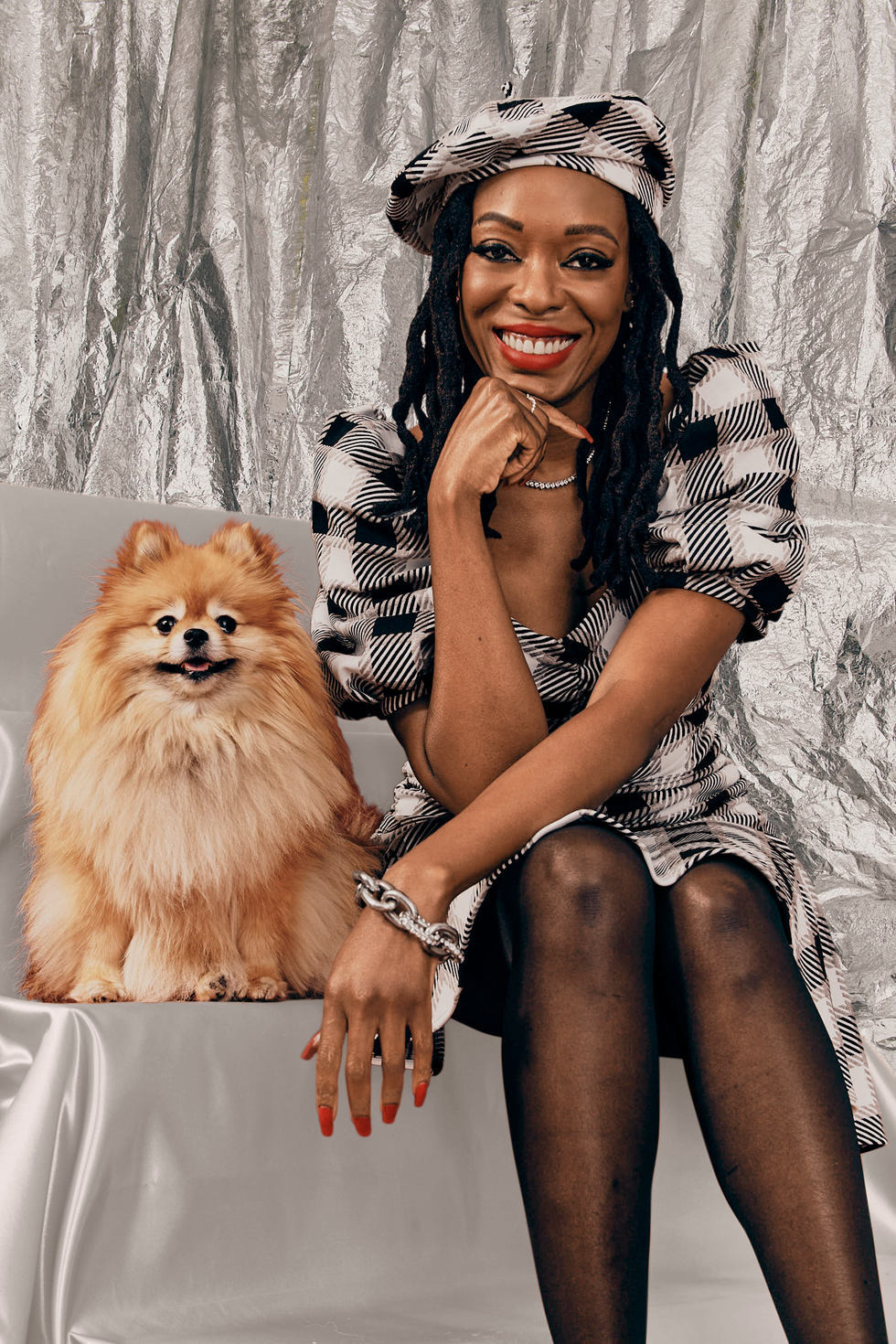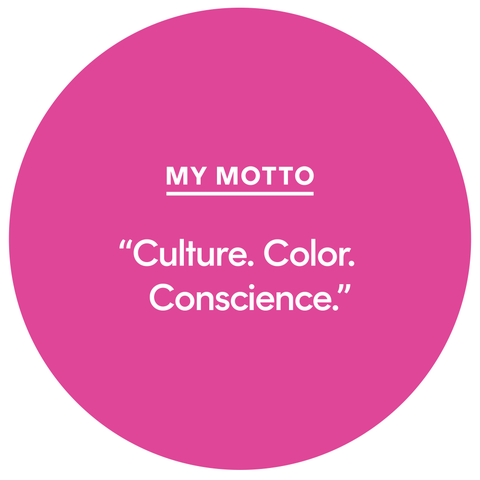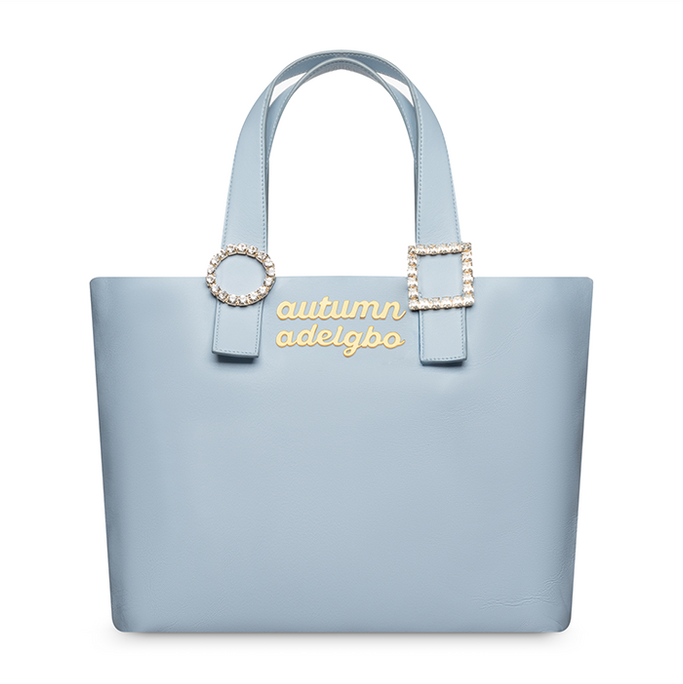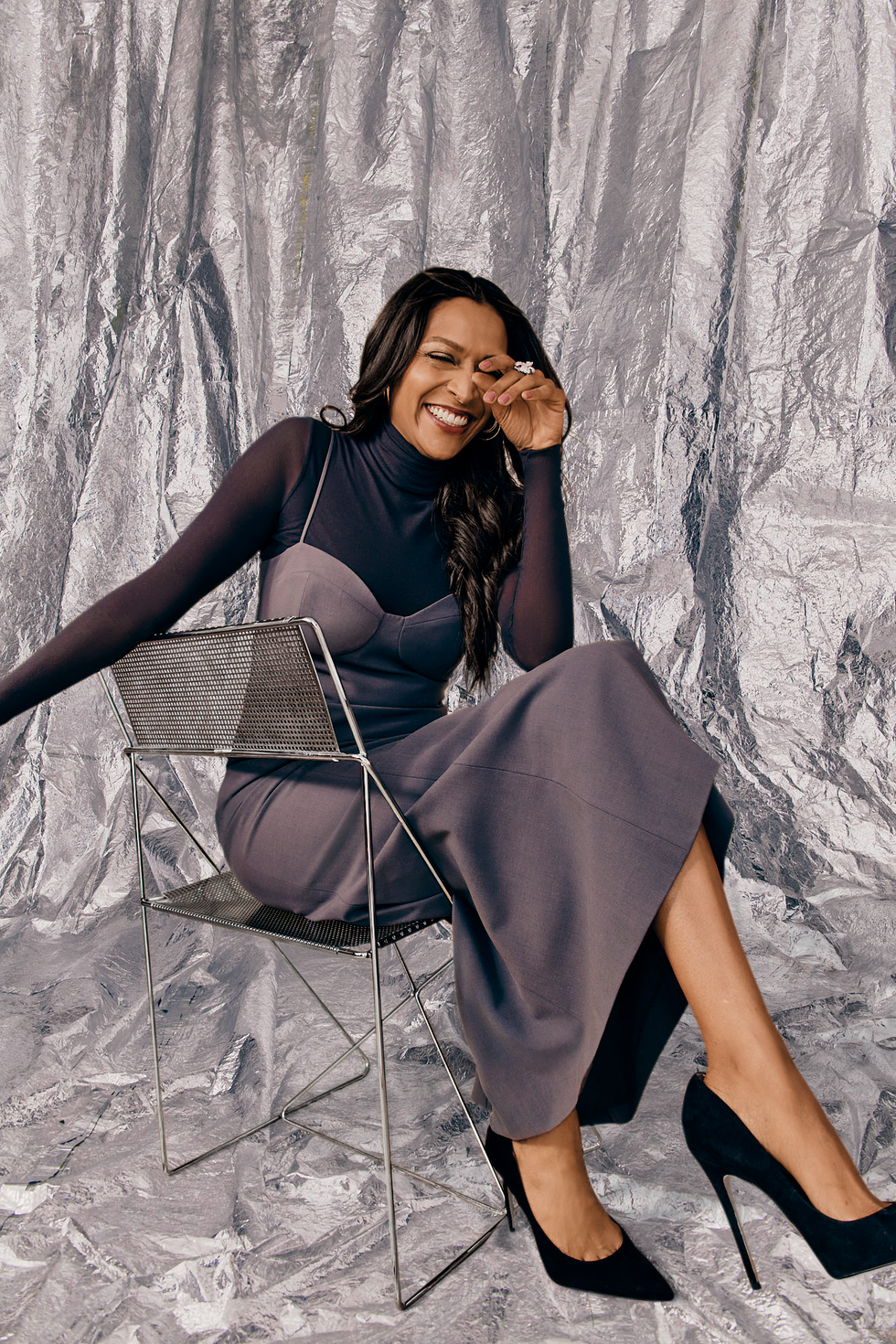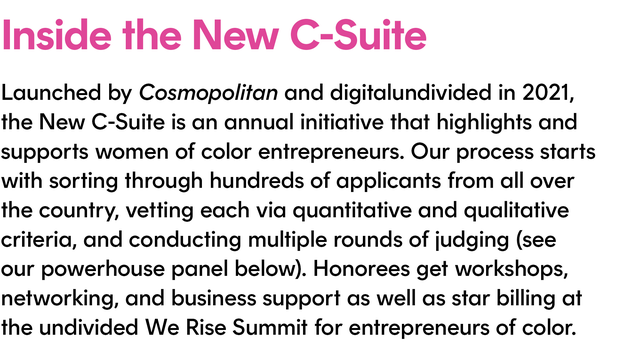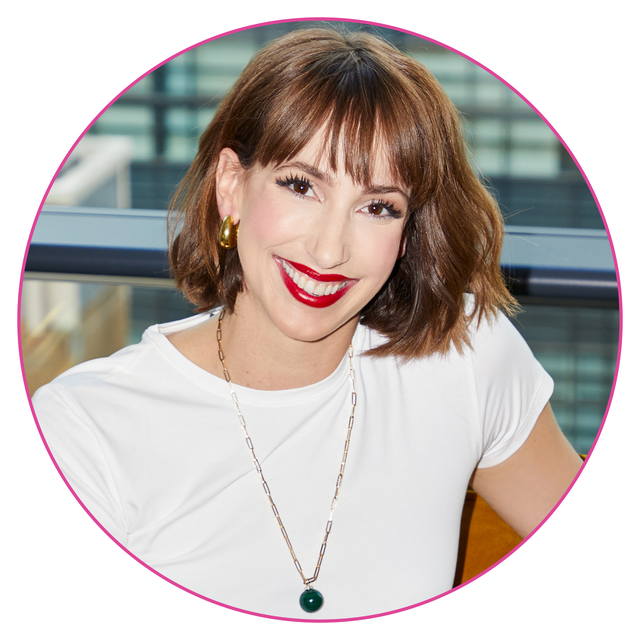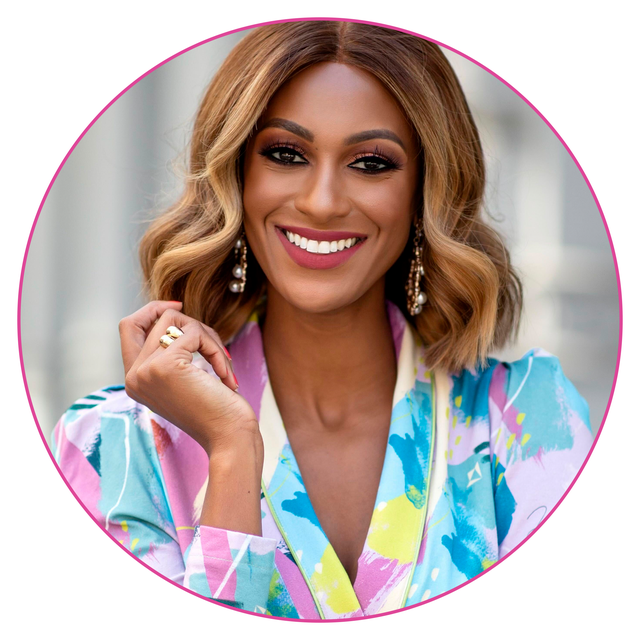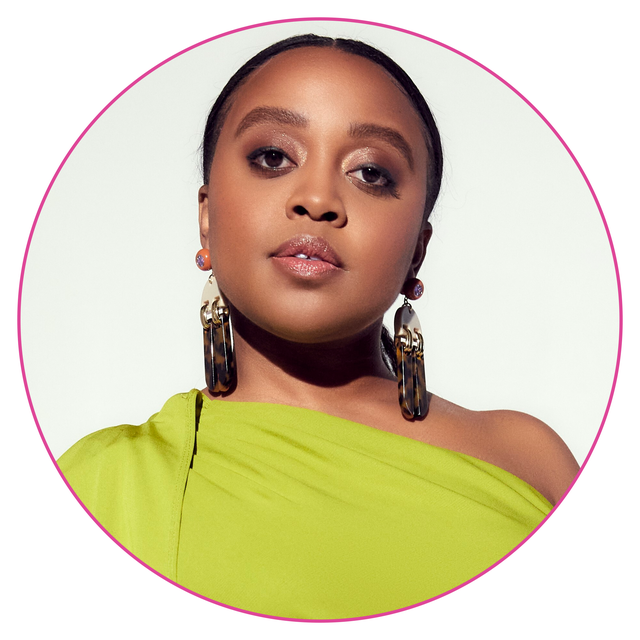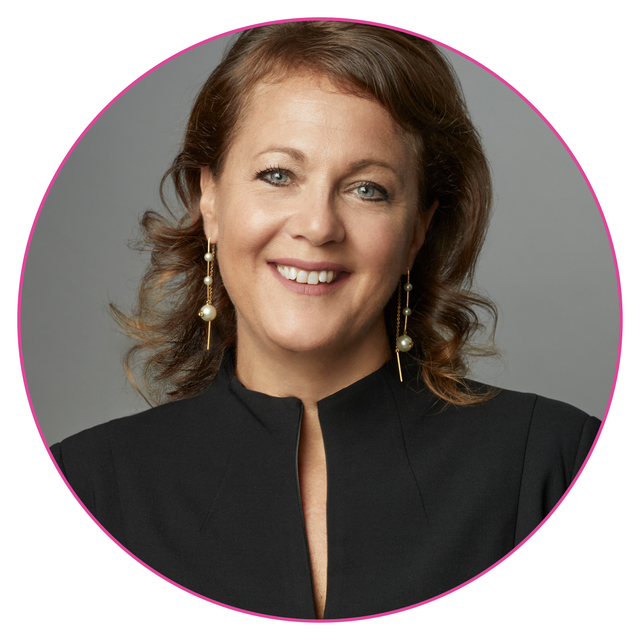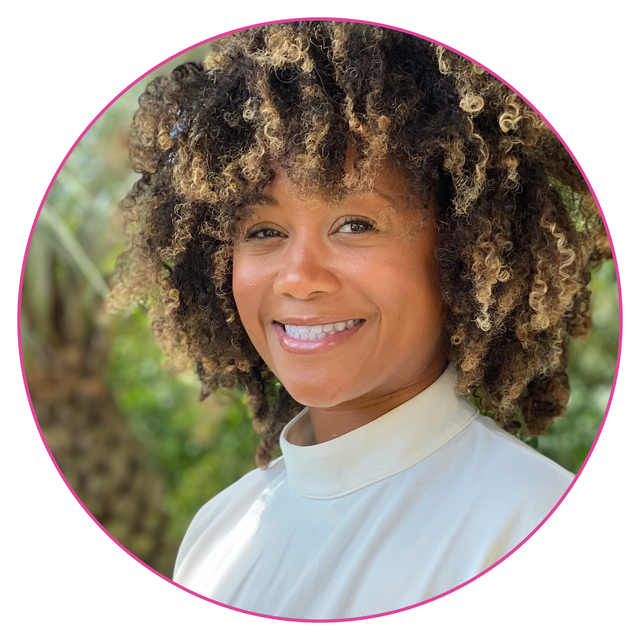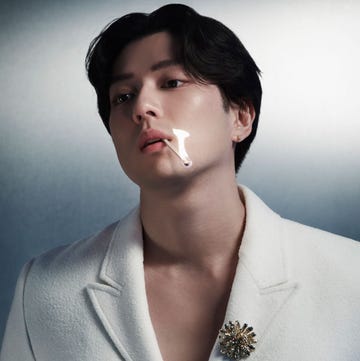News flash that’s less of a news flash and more of an are-you-freaking-kidding-me-still: In 2021, women of color held just 4 percent of C-level roles at U.S. companies. That number looks even worse when you narrow it down to C-level women of color founders, who—in addition to breaking down representational barriers in the country’s highest executive positions—*also* take on all the entrepreneurial grunt work while **also** setting new standards of excellence. And then there’s the fact that fewer than 1 percent of all venture capital dollars are going to these founders! It’s maddening. Which is why Cosmopolitan and digitalundivided (a nonprofit that focuses on catalyzing economic growth for Latina and Black female entrepreneurs) are beyond excited to do something positive: to celebrate the New C-Suite Class of 2022, 10 women who are redefining their industries while redirecting workplace culture. Prepare to be very, very inspired.
Her Business: TasselTurn is an education platform that connects unhoused and foster care youth with learning counselors and colleges.
Her Bragging Rights: The platform will host 1,500 students by this summer, and alums now include graduates from schools like the University of Michigan, North Carolina State University, and Columbia College Chicago.
How It Started: Shanté’s own experience in the foster care system plus her work with children’s advocacy groups led her to pinpoint a crucial need: “Seeing how often young people with foster care backgrounds were left out of the college admission conversation, I was like, Wow, what else can be done here?” She launched TasselTurn as a weekly Saturday tutoring group on the South Side of Chicago before taking it digital in 2019.
How It’s Going: The company recently debuted a learning hub for foster parents and caseworkers, Shanté says. “We’re teaching them educational advocacy skills that they can take back and use with kids.”
Why I Do It: “Because education is what allows not only foster youth but also children from other adverse backgrounds to start over, to chart their own paths.”
Her Business: Technology company Parfait uses AI to develop custom wigs.
Her Bragging Rights: Serena Williams and Kelly Rowland have invested with Isoken and her cofounders Ifueko Igbinedion, Marlyse Reeves, and Simone Kendle.
How It Started: While earning an MBA at the Wharton School, Isoken kept thinking about how frustrating wig-buying can be, especially for Black women. She decided to use technology to improve and simplify the entire process—helping shoppers create the perfect wigs (that actually fit) for their skin tone and preferred style.
How It’s Going: Parfait’s algorithms for developing custom wigs currently have a near-95 percent accuracy rate, Isoken says. Her goal is to raise that number to 99.9 percent and expand internationally.
Why I Do It: “We’re in an era where technology is making the lives of everyday people easier, but there’s still really little attention being paid to solving problems for marginal communities. That this wig-matching problem is so deeply felt by Black women…improving this process end to end really inspires me and my team every day.”
Her Business: Praxis Labs is a virtual reality immersive learning platform that helps organizations become more equitable, inclusive, and valuable.
Her Bragging Rights: Her clients include some of the world’s biggest companies: Google, Amazon, Merck, Uber, and Etsy.
How It Started: Inspired by their own lived experiences, Elise and her cofounder Heather Shen launched Praxis in 2019, coinciding with the continued rise of movements like Me Too and BLM that shed light on how urgently companies need to prioritize diversity, equity, and inclusion. Elise used her background in education-tech and the diversity and equity space to explore how Praxis could leverage “immersive learning” (a combination of perspective-taking experiences in VR and IRL) to solve these challenges.
How It’s Going: Praxis now has almost 50 full-time employees. “I’m most proud that our team is as diverse as the learners we’re serving,” Elise says. And those learners? Nearly 80 percent say Praxis helped their companies become more inclusive.
Why I Do It: “To ensure workplace culture is equitable and inclusive and that products and services have equitable outcomes—so we can all thrive, regardless of background.”
Her Business: The Labz is a web platform that allows companies to build socially engaging interactive websites and metaverse experiences.
Her Bragging Rights: In the past year alone, The Labz has seen a 90 percent growth in users. And Farah herself was named the Atlanta Journal-Constitution’s Woman of the Year for Technology.
How It Started: After working as an IT management consultant, Farah knew she wanted to be in the creative, fast-paced tech world. She started The Labz in 2018 as an app that music and film producers could use to protect their content. Then, during the height of COVID-19, she took the company in a new direction, running interactive events for film premieres and conferences.
How It’s Going: After raising $3 million in funding in 2022, The Labz now creates entire metaverses and runs interactive online experiences for mega-brands like Amazon, Hulu, Microsoft, Google, and Salesforce.
Why I Do It: “If I can progress women, have us be the norm in technology, then it’s not about me. It’s about what I’ve been able to contribute to the next person coming up.”
Her Business: Hued is a digital health company that’s working to create equitable and inclusive health care experiences for Black, Latinx, and Indigenous communities through training programs.
Her Bragging Rights: Hued raised $1.6 million last year and was selected for Google’s Black Founders Fund.
How It Started: In 2017, Kimberly was diagnosed with uterine fibroids that left her in debilitating pain, on top of feeling ignored by the multiple health care providers she approached looking for what she calls “culturally competent, culturally sensitive care.” The experience inspired her to launch Hued a year later, initially as a platform to connect Black patients with Black doctors.
How It’s Going: Hued recently unveiled a new digital platform called See My Skin. “It is the only database or directory that lets you search skin conditions on melanin-rich skin,” Kimberly says. “We provide people of color with trusted resources and education to ensure that patients get the care they need and deserve.”
Why I Do It: “What gets me out of bed is my desire to protect the preciousness of Black lives. I am fiercely passionate about doing my part to make sure other Black women wouldn’t have to go through what I did.”
Her Business: Nopalera is a Mexican botanicals bath and body-care line.
Her Bragging Rights: Nopalera made more than half a million dollars in revenue in 2021. This year, it was named Latino Startup of the Year at the 2022 L’Attitude Conference.
How It Started: Sandra’s job history includes everything from sales rep to Latin alt band front woman. When she found herself unemployed for the first time in 2019, she began making soaps as a hobby, and that led her to identify a distinct lack of culture-forward Latina beauty brands. “I decided that I was going to create a high-end Latina brand that would sit on the shelves of premium retailers to disrupt the Eurocentrism that we have all been conditioned to,” she says.
How It’s Going: Nopalera is currently sold at Nordstrom, Credo, and Free People plus at 350 independent retailers nationwide—with 700 more applications from boutiques wanting to sell its soaps and exfoliants.
Why I Do It: “Here in this country, it’s like, Oh, if it’s from France, it can be expensive. If it’s from Italy, it can be expensive. Why is it that we have been conditioned to aspire to all of these Western European brands? I really wanted to position our culture as aspirational.”
CHECK OUT NOPALERA!
Her Business: Rhoshan Pharmaceuticals develops safe, effective injectable aspirin.
Her Bragging Rights: After raising $5 million in seed funding, Hitha’s product is now in late-stage development.
How It Started: In 2016, Hitha’s father, a pharmaceutical scientist and now Rhoshan’s chief scientific officer, told her he’d developed a stable formula for injectable aspirin, a potentially lifesaving drug. Together, they used it to found the company. “Hopefully, it will start to become the standard of care in terms of delivering a more consistent, faster aspirin to anyone suspected of having a heart attack or an ischemic stroke,” she says.
How It’s Going: Hitha isn’t just trying to get a drug to market—she’s trying to make sure it’s affordable too. She recently signed a licensing deal to help deliver both. “This is not a product that’s going to cost a ton of money,” she says. “At the end of the day, it’s aspirin—it has to be affordable and it has to be accessible.”
Why I Do It: “I want to educate people around why this is important and also how to advocate for yourself when you’re in one of the most vulnerable moments of your life.”
Her Business: Pepper is a bra company geared toward the AA- to B-cup size range.
Her Bragging Rights: Pepper has sold more than 1 million bras and tripled its revenue from 2020 to 2021. Huge in any context, but especially major considering Jaclyn and her cofounder Lia Winograd were the only full-time employees for the first three years.
How It Started: As a smaller-chested woman, Jaclyn consistently found herself stuck with ill-fitting bras. She started Pepper in 2017 to solve the problem, hitting her Kickstarter campaign’s fundraising goal in just 10 hours. “We were getting so many emails and messages from strangers saying things like, Where have you been all my life?”
How It’s Going: Pepper, now a mid-eight-figure business, has 30 employees and is looking to take over the rest of your closet: “We’re expanding product categories, channels, and countries next year,” Jaclyn says. “Anything that a small-chested woman wears that doesn’t fit quite well or that she doesn’t feel confident in…we want to fix that and do it better.”
Why I Do It: “We have the ability to really inspire women, to build body confidence. I want to turn every single person into an advocate for loving their body.”
CHECK OUT PEPPER!
Her Business: Autumn Adeigbo is a lifestyle-driven fashion brand inspired by the colorful spirit of African art and culture.
Her Bragging Rights: Fans of Autumn’s work include Mila Kunis, Gabrielle Union, and Cameron Diaz—they love it so much that they’re now investors in her company.
How It Started: After majoring in economics at Spelman College and getting a degree in fashion design from Parsons, Autumn worked a myriad of jobs in the fashion industry with everyone from A-list stylists to top designers. In 2017, she rolled out her first collection of dresses and accessories, taking them all around the country doing trunk shows.
How It’s Going: In 2020, Autumn became the first Black woman to raise $1 million for a fashion brand (she’s raised a total of $4.4 million to date). You can now find her clothes and accessories at Nordstrom, Neiman Marcus, and Bergdorf Goodman.
Why I Do It: “Because there’s a big lack of representation in the fashion industry, there truly isn’t any product like ours on the market. And also because I’ve had a sketchbook in my hand since I was 19 years old, telling anybody who would listen that I was going to be a fashion designer. None believed me. I love to prove them all wrong!”
CHECK OUT AUTUMN ADEIGBO!
Her Business: VegaX Holdings is a digital asset management firm for cryptocurrency investors.
Her Bragging Rights: VegaX was the first-ever Black-female-led fintech company backed by the global venture capital firms SOSV and Artesian. Today, women make up about 40 percent of its employees, a major feat in the male-dominated crypto industry.
How It Started: “The reality is you are enough to learn the basics of what you need to take charge of your financial well-being,” Natasha says. “What got me into fintech, my motivation, was: Now how do we use technology to make things easier in an industry that purposely puts up barriers for you?” Her answer: VegaX, which she and her partner Sang Lee launched in 2019.
How It’s Going: VegaX has at times represented more than $120 million in Bitcoin on its platform. Its overall network has grown by 50 percent in 2022.
Why I Do It: “We want to provide real solutions that both general people and institutions can use, all in the world of moving this industry forward. Also pretty big for me is making sure we continue to focus on giving women in tech opportunities at companies like mine.”
Photographs by Tyler Joe. Hair: Walton Nunez for See Management. Makeup: Ashleigh Ciucci for See Management. Manicure: Mamie Onishi for See Management. Props: Elisia Mirabelli for B&A Reps. Tailoring: Irina Maiorova for Lars Nordensten.

Annabel Iwegbue is an associate editor at Cosmopolitan where she primarily covers entertainment and lifestyle. Before joining Cosmo, she covered entertainment at Harper's Bazaar, The Knockturnal, and Black Film. She's originally from Charleston, South Carolina, and is currently based in Brooklyn, New York. She holds a B.A. in Journalism and Cinema Studies from New York University. You can check out some of Annabel’s work here and also find her on Instagram and Twitter.
